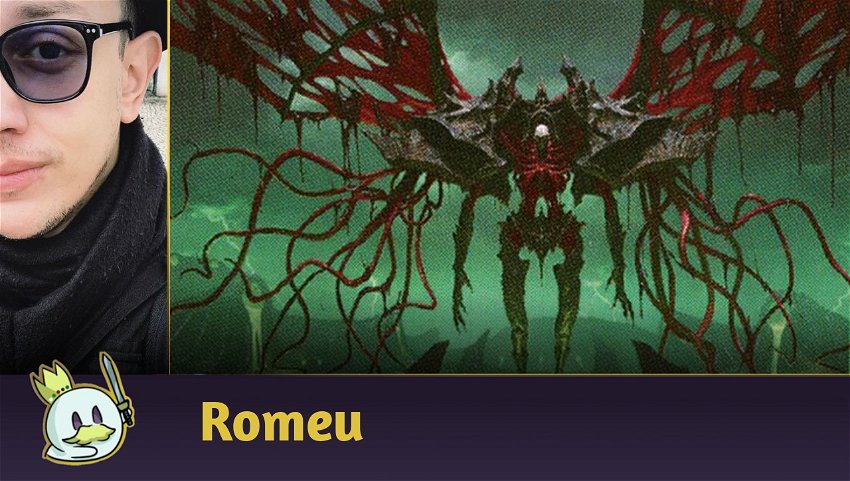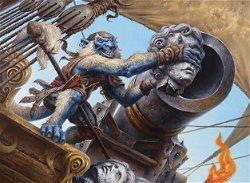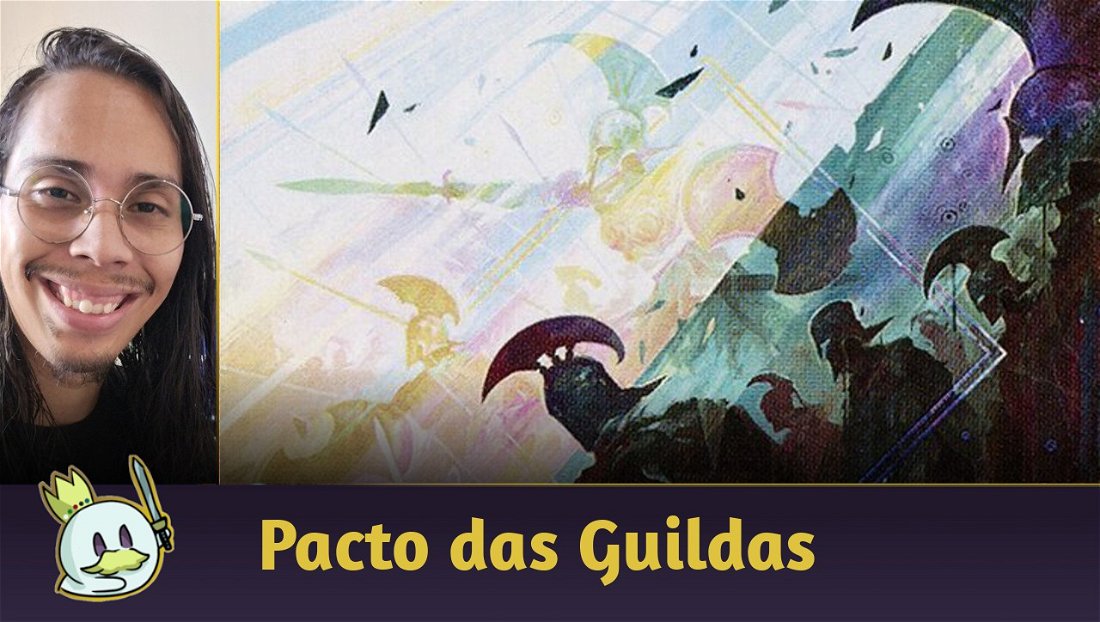This weekend, Magic: The Gathering's Regional Championship events took place across the world. With them, we could notice some changes in the Metagame, such as the rise of Azorius Spirits, and the fact that Boros Convoke seems to be stagnant in the Metagame after two weeks of supposed dominance.
The biggest news of the weekend was at the Regional Championship in Dallas, USA, where the player cfsoc caught the other players off guard by playing with a new combo: Archfiend Alteration.
Although the deck is legal on Pioneer, Metamorphic Alteration has a bug on Magic Online. Therefore, we don't have the opportunity to test it enough on the platform to bring a guide for this version yet. Therefore, in this article, we will introduce an Archfiend Alteration guide for Explorer!
How does the Archfiend Alteration combo work?

The combo revolves around the two cards above: Archfiend of the Dross has an ability where you must remove a counter from it at the beginning of your upkeep, and if it has no counters on it, you lose the game. It's already a pretty decent threat as a 6/6 with flying, and was seen in the Rakdos Midrange decks for a few weeks now.
Metamorphic Alteration is a peculiar variant of the Clone cards, where instead of it becoming a copy, it turns the enchanted creature into a copy. That is, any enters the battlefield effect the copied card would have doesn't occur when you enchant the target creature.
The combo revolves around having an Archfiend of the Dross on the battlefield, and enchanting an opponent's creature with Metamorphic Alteration turning it into a copy of Archfiend of the Dross. Since the opponent's creature is already in play, it will have no oil counters to remove, and when the turn passes to the beginning of the opponent's upkeep, they will lose the game.
Two-card, six-mana combinations involving a 6/6 with Flying are nothing new to Pioneer - in 2020, Dimir Inverter used Inverter of Truth with Thassa's Oracle to instantly win the game.
Archfiend Alteration has many similarities to Inverter, however, its window of opportunity for responses is greater than its predecessor, in addition to the clear need for a creature in play to close the combo, which can render it useless in some situations, unless you decide to run some suboptimal card like Akroan Horse to give them a creature.
Decklist
Dig Through Time, a key card of this archetype, is not yet available in Magic Arena, and some slots on the list seemed dedicated to increasing the consistency with which its controller can cast this card fast and for cheap.
Therefore, it was necessary to make some modifications to create a shell which this card is no longer geared towards, while not losing consistency in digging deep enough for our combo.
The main changes were in the manabase, where Fabled Passage is a poor option when we're not feeding our graveyard to play cards with Delve, and in our cantrips/draw spells package.

Without Dig Through Time, Consider becomes a lot worse when our plan involves chasing a combo instead of trying to play on Tempo. So, to make up for the absence of this key card, we've included eight cards that dig deeper, with Impulse and Experimental Augury.
There are several options for this slot, with Memory Deluge being another decent card, but one that costs too much for this version. If, in the future, a Dimir variant, with a combo-control posture, proves to be more efficient, I believe it will have more space for offering card advantage.
Another change was the increased diversity of removals from the list, as Fatal Push is worse without Fabled Passage. I even consider reducing their number to two copies and including one more two-mana removal, such as Power Word Kill, or another Go for the Throat.
Also, Drown in the Loch had more bad moments than good in my games, and was replaced by Kolaghan's Command, which while not working as well as a removal, has more flexibility in attrition matchups.
Maindeck

Our combo.
Archfiend of the Dross is pretty decent on its own and works as a win condition. In Pioneer, it is normal for the opponent to take some collateral damage from Shock Lands and/or damage from other creatures, and before you lose the game, this creature deals 18 flying damage divided into three turns, not counting its interaction with other cards.
Metamorphic Alteration is an average to bad topdeck outside the combo, but it has some relevant interactions, such as using it on one of your creatures to copy the biggest threat on the opponent's board, or using it on that same threat to transform it into a less threatening card.

Our complementary threats.
Bonecrusher Giant is already a Rakdos Midrange staple and one of the main red cards in the format. Here, it guarantees the extra "two damage" to finish the game with Archfiend of the Dross, acts as an early game removal and a threat that establishes a good clock or defends and trades well with several creatures.
Fable of the Mirror-Breaker is, today, Pioneer's most powerful card. It filters your hand, creates a token, speeds up your mana and still interacts very well with ETB effects and with huge creatures. It's very common to untap with Reflection of Kiki-Jiki and cast Archfiend of the Dross to copy it and start setting up an aggressive clock against the opponent.
Corpse Appraiser is an incidental graveyard hate, which also doubles as another means of filtering your deck for the parts you need. It's a card I wish I had more copies of, but there doesn't seem to be that much room for it in certain games.

Our cantrip package.
Both manage to look at a high number of cards to find what we need. Impulse is the best card of its category in Pioneer, while Experimental Augury has good micro-interactions with Archfiend of the Dross, Fable of the Mirror-Breaker and the Planeswalkers from the Sideboard.

Our protection package.
Thoughtseize is essential on this list because, in addition to removing a key piece from the opponent's hand, it allows us to obtain the necessary information to know how to play around the possible answers they have against our combo.
Spell Pierce and Make Disappear are our reactive plays, and each has its advantage: Pierce is better on the combo turn, where we need an extra backup to make sure it works, and Make Disappear is an universal counterspell, which also allows us to sacrifice our Archfiend of the Dross before its last counter is removed.

The removal package.
Fatal Push, despite getting worse without Fabled Passage, is still a decent and necessary removal when our game plan, in certain matches, involves delaying the opponent long enough until we close our combo.
Go for the Throat is a clean answer against bigger threats, while Sheoldred's Edict serves to deal with Planeswalkers as well.
Kolaghan's Command is not very efficient as a removal, but its recursive effect is important for seeking back an Archfiend of the Dross, or for destroying some unwanted artifacts in Game 1, such as Witch's Oven.

The mana base has been reworked to give more access to colors with flexibility between them. This is the point I've been working on the list the most. So don't take these slots as written in stone just yet.
In the Pioneer version, I would still try to play with at least two Fabled Passage to speed up Dig Through Time.
Sideboard

The original list had Vampires' Vengeance, and this card is awful, since it doesn't kill Vampire creatures that happen to show up in the main decks today, like Bloodtithe Harvester and Voldaren Epicure .
So, I replaced it with Brotherhood's End, which, despite not working at Instant-Speed and requiring two red mana, deals with a wider range of threats (Spell Queller, Bonecrusher Giant, Graveyard Trespasser, Soaring-Thought Thief, Mayhem Devil, among others), and also works against certain artifacts, such as Witch's Oven.
Path of Peril is a necessary evil against Boros Convoke, but works well against Humans and Rogues, while Extinction Event is also a more efficient removal against Midranges.
Ray of Enfeeblement works against Greasefang, Okiba Boss, and is also a great removal against Spirits, Human, Boros Convoke, and the mana dorks of Gruul Vehicles or Mono Green Devotion.

Our pack of counterspells against attrition matchups.
Both are very useful against Rakdos Midrange, Mono Green Devotion, Control decks, and Goodstuff lists such as Four-Color Fires.

The attrition/card advantage stuff.
Reckoner Bankbuster is an excellent staple for games where card advantage matters. In addition, it helps speed up mana and creates a token that we can enchant with Metamorphic Alteration to copy something more important from the opponent.
Liliana of the Veil is useful in Control matchups, where we need to give up the combo, as the opponent doesn't usually play with almost any creature - and will try to play around with Shark Typhoon so as not to lose instantly -, where we want to minimize the number of dead cards in our hand.
Ashiok, Nightmare Muse is an excellent weapon in Midrange games if we manage to keep the opponent's board under control. Resolving it on an empty battlefield puts a lot of pressure, while casting it with more threats on the board helps hold the game for a few more turns.

Pithing Needle is the Swiss army knife on the list. It has multiple targets in the current Metagame, but we need to assess, game by game, what moments we really want it.
Tips and Tricks
Mulligan
In essence, Grixis Archfiend Alteration is a Midrange deck with the possibility of a combo-kill from the fifth or sixth turn. Therefore, your keep against an unknown opponent boils down to considering whether you can play the first turns or whether you have the necessary elements to close the combo.
Hands with tons of 3+ mana cost spells are a sure mulligan, unless you have two lands and an early game disruption and/or a cantrip. On the other hand, land-heavy hands are also a Mulligan because you need a more interactive stance.
In Games 2 and 3, where you already know how your opponent behaves, it is necessary to understand how you manage to win the game: would it be possible to go straight to the combo-kill without worrying about disruption, or do we need to play "fair game" and, if the opportunity arises, close the combo? Do we need more removal and/or more hand interaction, or counterspells? How important is securing our land drops in the first five turns? How vulnerable to Thoughtseize is this hand?
As with all of Pioneer's interactive strategy, this archetype doesn't give you many set in stone decisions, and they depend on the posture that each game forces you to have and/or which are the key cards you want to play or prevent your opponent from playing.
Postures
As mentioned above, Archfiend Alteration is a very flexible archetype, but we need to understand what our best chances of winning the game are to know which cards to fetch with our cantrips or which to discard with Fable of the Mirror-Breaker.
In a general context, the less interactive the opponent's deck is, it is likely that your best option is to close the combo as soon as possible. Archetypes like Humans, Mono Green Devotion, Boros Convoke, and Mono Red Aggro aren't strategies we can beat in "Fair Magic", so our best route is to hold the game long enough to enchant one of their creatures with Metamorphic Alteration.
Against more interactive decks, the combo possibility still exists, but we need a more proactive plan, based on making them spend resources and opening up opportunities for us to execute the combo, or for us to win the game by attacking in the air with Archfiend of the Dross.
Tips and Tricks
Metamorphic Alteration can be used on your creatures to copy an opponent's greater threat. In fact, this play is more common than it seems in Midrange mirrors.
Elesh Norn, Mother of Machines doesn't work against our combo, as Metamorphic Alteration's ability is not an ETB trigger, but an effect that occurs as it enters the battlefield.
If the opponent doesn't have an answer on their turn, they can't take any actions until their upkeep, where the Archfiend of the Dross trigger is already on the stack.
You can use Metamorphic Alteration on one of your creatures to copy Reflections of Kiki-Jiki. In this way, we can use the combo of making one Reflections copy the other at the end of the opponent's turn, to have an army of copies, ready to attack on our turn.
Experimental Augury can be used to increase the number of counters on Fable of the Mirror-Breaker, and this is excellent for transforming the saga at the end of the opponent's turn, to use it on your turn.
You can copy Archfiend of the Dross with Reflections of Kiki-Jiki to attack with one more 6/6 creature with flying. Winning games with this combination is common.
Archfiend of the Dross has a second ability, where it makes the opponent lose 2 life every time a creature they control dies. You can increase your clock with it through removals, or by trading blockers/attackers with your other creatures.
Sideboard Guide
Rakdos Midrange
IN

OUT

Mono Green Devotion
IN

OUT

Rakdos Sacrifice
IN

OUT

Azorius Control
IN

OUT

Mono White Humans
IN

OUT

Abzan Greasefang
IN

OUT

Azorius Spirits
IN

OUT

Keruga Fires
IN

OUT

Izzet Creativity
IN

OUT

Mono Red Aggro
IN

OUT

Selesnya Angels
IN

OUT

Boros Convoke
IN

OUT

Gruul Vehicles
IN

OUT

Conclusion
Archfiend Alteration is Pioneer's latest combo, which players will have a hard time trying out, as its key card, Metamorphic Alteration remains bugged in Magic Online. This brings Pioneer players a known risk in the Legacy community - that of having different Metagames between digital and tabletop due to a failure and/or non-availability of a card on the virtual platform.
It seems consistent and very flexible about adapting to the Metagame, while cfsoc finished with an average result in the Regional Championship, Nicole Dubin won a 10k Pioneer event the next day, also in Dallas, using another list with minor changes.
Overall, this strategy looks solid and has a lot of potential to evolve in the coming weeks.
Thanks for reading!














— 评论 0
, 反应 1
成为第一个发表评论的人